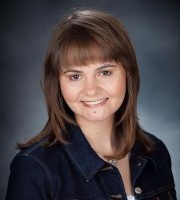
Manifesto urges diversification at geography conference
About 140 geography professors have added their name to a “manifesto” calling on the Association of American Geographers to diversify its conference panels, decrying them as too white and male.
“Geography is still predominantly white and male, but there are far more women and people of color than in previous decades,” it states. “… Yet this shift in the racial and gender composition of the field is often not fully reflected at key sites and moments, including the composition of and attendance at conference panels, inclusion in syllabi and special issues, citations, and the hiring, evaluation, and promotion of faculty.”
The 111-year-old Association of American Geographers is a nonprofit scientific and educational society whose members hail from more than 60 countries and share interests in the theory, methods, and practice of geography, which they cultivate through its annual meeting and scholarly journals, its website states.
The manifesto asks those organizing panels at the association’s annual meeting to broaden their scope and advertise widely to seek out “women and people of color,” but clarifies “we are advocating relevant and broadening intellectual fit, not tokenism.”
Rebecca Lave, associate professor of geography at Indiana University and head author of the petition, titled “Manifesto on the gender and racial composition of AAG panels,” told The College Fix that the panels are crowded by white men, and organizers have not worked to better include more women and people of color.
At its annual meeting in April, for example, the panels did not ask geographers who were minorities to participate and the few women invited to take part refused as a matter of principle, Lave said in a telephone interview.
“It was the first time I’ve seen the audience get really angry about it,” Lave said. “It seemed like a moment in which people were really frustrated with the status quo and had the feeling to try to change it.”
“I don’t think the problem is people being very, very strongly racist and sexist. I think it’s just people aren’t thinking through how they could change their conference organizing practices to more reflect how they are in the world,” Lave added. “I think, hopefully, what the manifesto will do is help people to think about it and do things differently.”
The conference panels allow scholars to highlight their work and help others in the field know what subjects their peers are pursuing more conveniently than reading written reports, according to Lave, a frequent speaker at such conferences.
“It’s where we all see who is important in the field and whose work is being showcased,” Lave told The Fix. “The concern many people share is the conference sessions at AAG no longer reflect the current demographic composition of the field so that the fancy panels are getting the attention and even the regular panels are often all male or all white or both.”
Lave said she finds this to be important for two reasons: she believes it doesn’t provide recognition to this smaller population’s work and narrows the points of view on the issues discussed.
“I think that many scholars of color and female scholars are doing work that takes a different angle on problems geographers really care about,” Lave said. “Not including them in conference sessions means we have an impoverished intellectual debate in the field.”
In this case, Lave pointed to her own specialization, human environment geography. In this field, researchers typically spend a year or more in a single community to gain an understanding of its use of resources, challenges to obtaining resources, and reaction to the obstacles it faces.
“When people are doing ethnographic research, in many communities, who you have access to is strongly dependent on your gender. As a man, it can be really difficult to have access to what women in these communities can be thinking about things,” Lave said. “Different scholars from different positions can get different slices to the same issue.”
For example, Michael Watts, professor of geography and development studies at the University of California-Berkeley, depicted this challenge in his 2013 book, “Silent Violence: Food, Famine, and Peasantry in Northern Nigeria,” she said.
“He was doing ethnographic research in a Muslim community, and it was simply unacceptable for him to have extended conversations with the women in the community,” Lave said. “For religious reasons, he was shut out of that part of the conversation.”
Lave noted, in a blog post headlined “the unbearable white-maleness of AAG” that precedes the manifesto, that “AAG is not a reflection of our field, it’s a key site for changing it.”
While Lave provided extensive comments to The College Fix, at least 10 other scholars declined to comment or did not respond to interview requests.
The manifesto concludes by calling its suggestions “a very partial fix.”
“Race and gender are just two of a number of pertinent axes of power and exclusion, including class, sexual orientation, disability, and language,” it states. “… Our hope with this proposal is to jumpstart changes in our collective expectations for session organization that can form the basis of wider challenges to the operation of structural power in Geography, and in academia more broadly.”
AAG Executive Director Doug Richardson, a signer of the manifesto, said the diversification of ideas is of great importance to the organization.
“AAG presidents and governing council members and I are all very committed to and supportive of policies which enhance diversity, inclusion, and equity,” Richardson said in an email to The College Fix.
Richardson acknowledged the history of male dominance in geography and that there has been a movement to make changes.
“Much more needs to be done to achieve greater participation of all underrepresented groups,” Richardson said. “The association, its presidents and staff, and its governing council have been very active in seeking ways to increase diversity, equity, and inclusiveness throughout the discipline, working together with geography departments and their universities.”
Like The College Fix on Facebook / Follow us on Twitter
IMAGE: Shutterstock






Please join the conversation about our stories on Facebook, Twitter, Instagram, Reddit, MeWe, Rumble, Gab, Minds and Gettr.